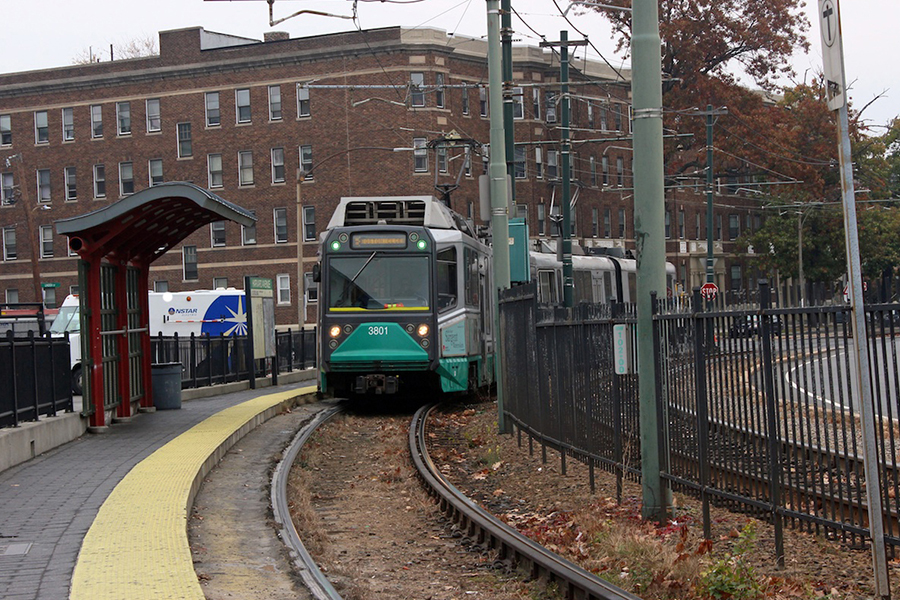The MBTA Might Consider Fare Hikes to Combat Budget Deficit
The transit agency expects a $111 million shortfall, and increased ticket prices could be used to balance the budget.

MBTA green line / Photo by Olga Khvan
The MBTA is once again contemplating the possibility of fare hikes as a way to manage a ballooning budget deficit.
On Monday, MBTA officials projected the agency’s deficit will rise to $111 million by fiscal year 2019 and didn’t completely rule out fare hikes as an option to counteract that shortfall. Debt payments account for a huge chunk of the $88 million structural deficit bulge, but the commuter rail, pension contributions, and compensation for new hires are also expected to add significant dollars to the MBTA’s tab.
Luis Ramirez, the T’s general manager, told the Boston Globe that Monday’s meeting was just a jumping-off point as the board figures out the agency’s finances, and rising fares are not a foregone conclusion.
The MBTA increased fares in 2012, 2014, and 2016, and the option is on the table again for next January, as state law says the agency can only make seven percent increases every two years. Last time around, costs rose system-wide by 9.3 percent, much to the chagrin of commuters and protesters who interrupted the board’s meeting to express their frustrations.
It’s not hard to imagine that higher fares could drive some riders away from the MBTA and toward alternatives like Uber and Lyft. And that choice not only spells trouble for the city’s already congested streets, but also for the agency, which the Metropolitan Area Planning Council estimates loses roughly 35 cents of revenue every time someone uses a ride-share app.
But even if the MBTA makes public transit more expensive in Boston, riders here will still be left with as much or more cash in their pockets than commuters in other cities. If fares rise by roughly 10 percent—so a one-way ticket with a CharlieCard clocks in at $2.50—Boston’s prices will be on-par with or below those in cities like San Francisco, New York, Chicago, Philadelphia, and Atlanta. No one actually wants to pay more to get on the T, but the MBTA board would hardly be sitting on an island if it raises rates by a quarter.


